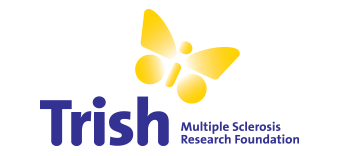Active self-monitoring progress
In January 2020, A/Prof Anneke van der Walt was awarded a 3-year Trish Translational Research Project Grant titled, “Active self-monitoring to prospectively detect treatment failure and define subclinical progression trajectories in MS: The ACTIVE-MS Program”.
Knowing as early as possible if a treatment for MS is keeping the disease under full control is important but difficult to do in real practice.
New technology, especially health apps and smartphones, have made it possible for PwMS to collect
information in daily life. If we combine this information with routine neurology assessments, MRI data and even genetic information, we can, for the first time, get a complete picture of someone’s functioning.
This can help determine earlier if a medication is truly working and how a PwMS is really going. By
detecting subtle changes earlier, MS treatments can be used better and, it allows for a new way to
develop and test potential new treatments.
To accomplish the aims of this study, much of the groundwork for this study has been done in the year 2020. Key outcomes to date are the ethics and governance approvals and implementation of the study.
A/Prof Van der Walt and her team’s aim is to implement and validate novel tests that can be used to predict, early on, if patients with MS are likely to have a good or poor outcome. This information could be used in clinical practice to optimize treatment choice quickly and efficiently, to ensure people with MS maintain the best quality of life and productivity. To achieve this aim, they want to recruit 300 participants at four different hospitals over 12 months who will be complete a series of simple tests using their smartphone at home. Participants are also asked to share information about their MS that is collected during routine care clinic visits approximately 6 monthly, and to complete a quality-of-life questionnaire, depression and worry, and work productivity questionnaire at these routine care clinic visits for at least 12 months or the entire study duration if they choose. They are also asked to provide access to their routine magnetic resonance imaging (MRI) scans done in the 24 months preceding this study and for 36 months of observation during this protocol (estimated 4 routine scans).
Progress so far, is that the study has been approved at three of the four hospital sites. Furthermore, one site has started to recruit patients. Due to the covid restrictions, there are little to no in-patient clinic visits which has and will continue to significantly impact the speed of recruitment. An amendment has been put through to enable telehealth consenting and visits, and to optimise testing frequency. We expect all the sites to be approved and actively recruiting before mid-2021.
This study has contributed to successful collaborations and has attracted industry funding which will allow expansion of the study to an additional 6-7 sites nationally and increase the participants from 300 to 800.
